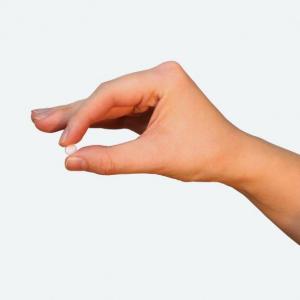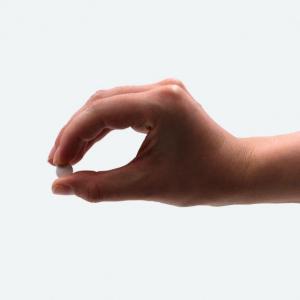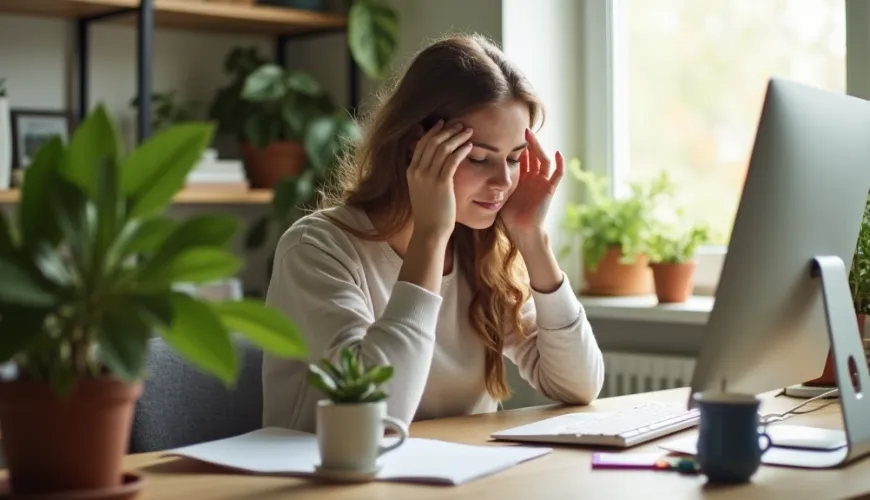
What to Do in Case of Sudden Loss of Balance and How to Manage It

When the Body Loses Stability - What Can Cause Sudden Loss of Balance and How to Address It
Balance, which most people take for granted, is the result of a complex cooperation between sensory organs, the brain, and the muscular system. When it is suddenly disrupted, it can be not only unpleasant but also dangerous. Sudden loss of balance is not just a matter of momentary clumsiness – it often signals a deeper issue that is worth exploring.
You may have experienced it: you're walking down the sidewalk when you suddenly feel a strange sensation as if everything is spinning. You take a step into thin air, stagger, and quickly grab the railing. Sometimes, the culprit is simple fatigue or a sudden rise, but other times, the body is signaling that something is happening in the balance system – a system we rely on from our first steps.
Balance as a Cooperation of Multiple Systems
To walk, stand, or even just sit without constantly falling over, three main systems must cooperate: the vestibular apparatus in the inner ear, which perceives head movement and body position relative to gravity, vision, which provides information about the surroundings and horizon, and proprioception, the perception of the position and movement of individual body parts. All of this is constantly mediated by the brain, which evaluates these signals and sends instructions to the muscles.
If any of these components fail, an unpleasant phenomenon can occur – a person feels dizzy, their legs buckle, or they may even fall. Causes of sudden loss of balance vary: sometimes harmless, other times very serious.
Common Culprits of Sudden Staggering
While in younger people, it may be a reaction to dehydration, low blood pressure, or a sudden change in position, in older individuals, loss of balance is more often associated with coordination disorders or neurological problems. The most common causes include:
- Vestibular disorders such as benign paroxysmal positional vertigo (BPPV), characterized by brief dizziness when turning the head
- Low blood pressure or orthostatic hypotension – a condition where blood pressure drops sharply when standing up
- Vision disorders or poorly adjusted glasses
- Neurological diseases such as Parkinson's disease or multiple sclerosis
- Diabetic neuropathy, where nerve disorders reduce the ability to perceive the position of the feet relative to the ground
- Strokes, which can suddenly disrupt movement and balance control
For some people, strong psychological stress can also be a trigger. Anxiety and panic attacks often manifest as feelings of instability or "swaying," which can be mistaken for a physical loss of balance.
An example is 42-year-old teacher Jana, who began to feel that her world occasionally "rocked." At first, she thought she was just overworked. But when she nearly fell while getting off a tram, she visited a doctor. After a series of examinations, she was diagnosed with vestibular migraine – a less-known form of migraine that manifests as dizziness instead of a headache.
How to Strengthen Balance Outside the Gym
While some conditions cannot be avoided, in most cases, the balance system can be trained and strengthened, similar to muscles. Regular physical activity is key, ideally with elements of coordination and working with the center of gravity – such as yoga, tai chi, or simply walking on uneven terrain. It's also important to pay attention to quality footwear, especially for older individuals.
For people who spend most of the day sitting, the deep stabilization system weakens, which can lead to uncertain walking and a higher risk of falls. Many physiotherapists, therefore, recommend exercises on a soft mat or balance cushion, which activate muscles that otherwise remain inactive.
Simple exercises, such as standing on one leg with eyes closed or walking along a line drawn on the floor, can significantly improve the sense of balance. The key is regularity and patience – results don't appear overnight but are long-term and significantly reduce the risk of falls, especially in older age.
Diet, Hydration, and Lifestyle
Lack of certain nutrients can also affect balance, especially vitamin B12 and iron. These are essential for the proper functioning of the nervous system. Vegetarians and vegans, in particular, should ensure an adequate intake of these substances, possibly supplementing them from quality plant sources or dietary supplements.
Try our natural products
Adequate hydration is also crucial – dehydration leads to a drop in blood pressure and thus an increased risk of dizziness. During hot days or physical activity, it's necessary to consume more fluids, ideally pure water or unsweetened herbal teas.
According to the World Health Organization, falls are a major cause of injury in older people, and up to 37% of these falls result in serious health complications. Due to loss of balance during ordinary movement in the home, many fractures occur – often these are situations that could be prevented with appropriate environmental or lifestyle adjustments.
What to Do When You Repeatedly Lose Balance?
It's important to listen to your body. If loss of balance occurs repeatedly, it should be taken seriously, and professional help should be sought. A general practitioner may recommend neurological, ENT, or internal examinations, or possibly physiotherapy. Early diagnosis can prevent more serious complications.
One tool that doctors use is called posturography – a method that monitors how the body responds to various stimuli when standing on a sensitive platform. The examination helps determine if the problem lies in the inner ear, brain, muscles, or perhaps a combination of several factors.
In many cases, medication is not necessary. A lifestyle change, targeted training, and adjustments to the everyday environment can help: removing carpets, ensuring sufficient lighting, or using non-slip mats in the bathroom.
Loss of balance is often a neglected symptom that people attribute to fatigue or "bad mood." But as neurologist Dr. Hana Váchová says: "When the body loses balance, it's not just a problem of the legs. It's a matter of the entire system, which we should take seriously."
Paying attention to the body's signals, eating well, staying active, and taking care of our senses – all this can be a surprisingly simple yet effective recipe for feeling steady on your feet again.







